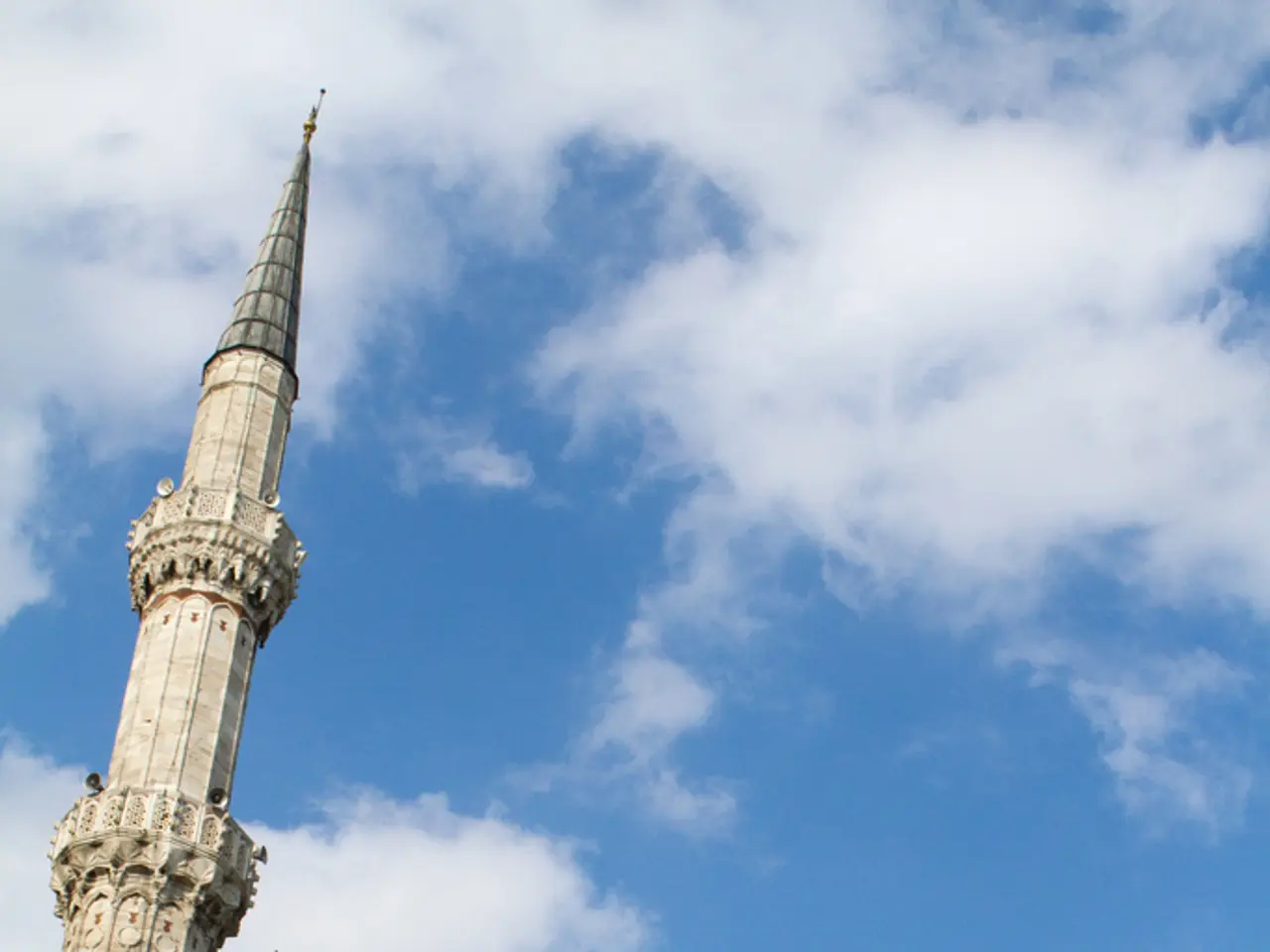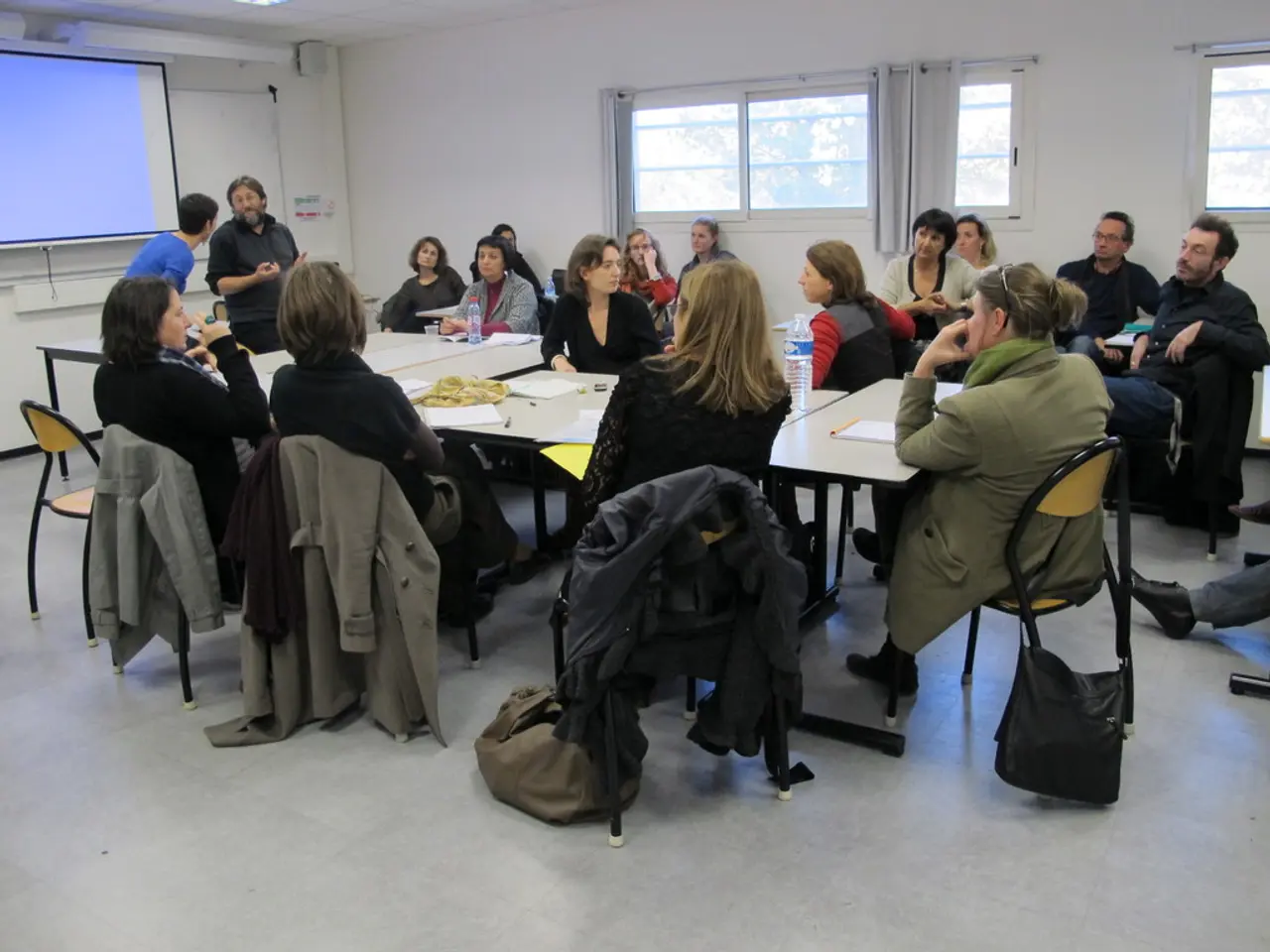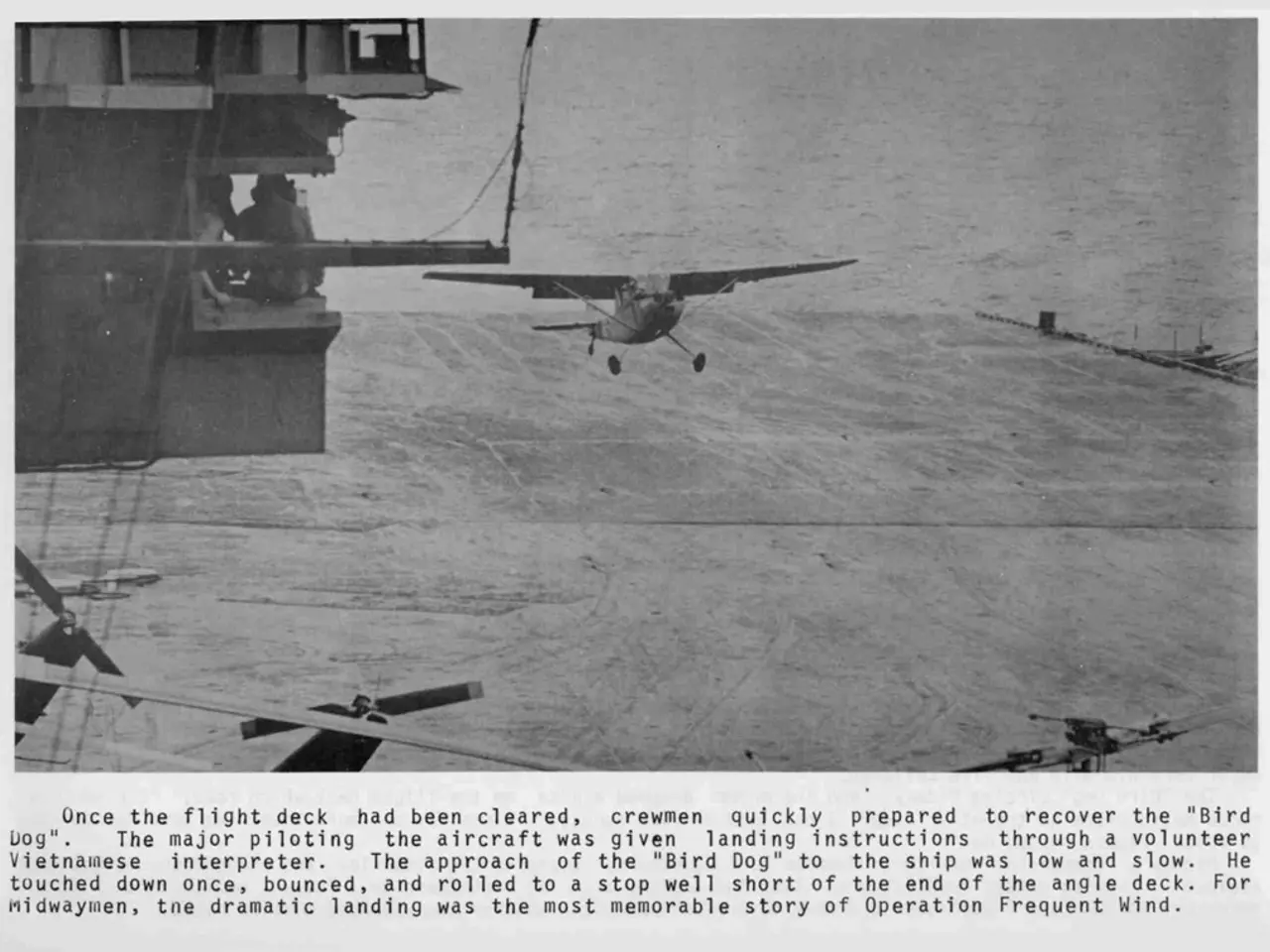Iranian Prince Rejects Compromise with Islamic Regime: "No Concessions to the Authoritarian Theocracy"
Rantin' Reza: The Pahlavi Heir Throws Down the Gauntlet Against the Tehran Regime
In a fiery speech on Tuesday, Reza Pahlavi, the son of the last Iranian Shah and the face of Iranian exile opposition, didn't sugarcoat his thoughts. He declared war on the Tehran regime, shouting, "Khamenei's hiding like a yellowbellied rat in his burrow." He labeled the Islamic Republic as a drowning ship, urging, "Now's the time to rise up and reclaim Iran," in a video message from his exile in the States.
The Berliner Zeitung held a lengthy chat with Pahlavi about his designs for a democratic Iran, the current whirlwind, and the role of German Chancellor Friedrich Merz.
Pahlavi: Iran's Salvation won't be Handled by Israel or the USA
When asked about the Tehran regime's stability following Israel's strikes on his old stomping grounds, Pahlavi remarked, "The Islamic Republic's at its weakest point. Cracks in the foundation, an economic collapse, and the population's rage are growing more visible by the day." The Israeli strikes have also exposed how brittle the Tehran leadership truly is, according to Pahlavi.
But, the exiled opposition leader issues a word of caution: "Iran's liberation won't be dictated by foreign powers." Change has to rise from within - by the Iranian people themselves. "The international community must back our legitimate quest for freedom instead of coddling this failed regime," he said to the Berliner Zeitung.
Pahlavi envisions the international community playing a supporting role in "the legitimate aspirations of the Iranian people for freedom." He aims to include both the West and the East, as well as the Global South in this process. While Pahlavi has faced criticism from Iran experts for being too comfy with the American political elite, the Shah's son flatly denies any interest in negotiations with the current rulers in Iran.
The Iran negotiations in Geneva last Friday, involving the French, British, Iranian, and German foreign ministers, are dismissed by Pahlavi as appeasing a collapsing regime.
When asked about his vision for Iran's future, Pahlavi lays out a comprehensive strategy: "I strive for a secular, democratic state that ensures human rights, freedom of speech, and the rule of law. The transition must begin with a provisional government that guarantees stability and organizes free elections." The urgent tasks he identifies are "to protect citizens from regime violence, secure international support - including humanitarian aid - and bolster civil society."
Over a week after the Israeli assault on Iran, there have been no revolutionary uprisings against the regime. Pahlavi talks up "empowering civil society to steer the democratic process." However, it remains unclear who will aid the Iranian society in their fight for freedom. Pahlavi asserts that he harbors no monarchical ambitions.
A Cry to the Iranian Security Forces: Listen Up, Dudes
In a conversation with Berliner Zeitung, Pahlavi addresses Iranian security forces particularly scathingly: "Join forces with the people, and you can save the lives of Iranians and play a historic role in shepherding us to a free future." However, it's worth noting that there's been no mass desertion among the authorities, police, or powerful Revolutionary Guards yet. The influence of the Shah's son on the Iranian population is a heavily debated topic, with experts estimating his sway over the situation to be minimal.
When asked how Pahlavi plans to leverage the support of Iranian exiles worldwide, he explains that the trust of his fellow countrymen in the past couple of days is his greatest inspiration. "Every day, I work to convert this trust into tangible actions for our nation's liberation."
The Islamic Revolution of 1979 led to the overthrow of Shah Mohammed Reza Pahlavi (Pahlavi's father) and established the current Islamist-theocratic regime in Iran. Pahlavi assigns blame for the current dispute with Israel to Ayatollah Ali Khamenei. Khamenei, who's been the Supreme Leader heading the Iranian state since 1989, is the central figure of the Mullah regime that emerged from the 1979 Islamic Revolution.
There's currently tension between Pahlavi and the West, with Germany being particularly infuriating: His snub from the Munich Security Conference 2025 was met with a sharp rebuke: "That wasn't just a rejection of me, but of the voice of the Iranian people." Germany and other European democracies should have realized that "yielding to the Islamic dictatorship" has undercut global security, according to Pahlavi.
However, he remains optimistic: "Chancellor Friedrich Merz has sent some promising signals lately. I hope this means a true policy change in Berlin." The support of Israel's Prime Minister Benjamin Netanyahu also provides solace for the Shah's son, who speaks of a "turning point" and a "historic opportunity." The coming days and weeks will reveal what lies ahead for Iran.
Background:Reza Pahlavi is the eldest son of Mohammad Reza Shah Pahlavi, the last Shah of Iran before the 1979 Iranian Revolution. Born in 1960, he was officially named Crown Prince of Iran in 1967 during his father's coronation. Educated as a fighter pilot in the United States, he offered to serve Iran during the Iran-Iraq War but was rejected by the post-revolutionary Iranian government. Since then, Pahlavi has become a prominent leader of the Iranian opposition and a vocal advocate for liberal democracy in Iran. As the founder and leader of the National Council of Iran, an exiled opposition group, he champions liberal democratic values, including alliances with Western countries and Europe. In February 2025, opposition factions selected him to lead a transitional government "until the formation of the first national assembly and the beginning of a democratic government through free elections," indicating his central role in the opposition's vision for Iran's political future.
What are Pahlavi's views on external powers dictating Iran's liberation? He firmly believes that change should originate from within the Iranian people themselves, not from foreign powers.
In his conversations with the German media, Pahlavi also addressed the role of German Chancellor Friedrich Merz, as well as policy-and-legislation, war-and-conflicts, general-news, and politics, emphasizing the importance of international support for the legitimate quest for freedom in Iran, without negotiations with the current rulers in the country.






